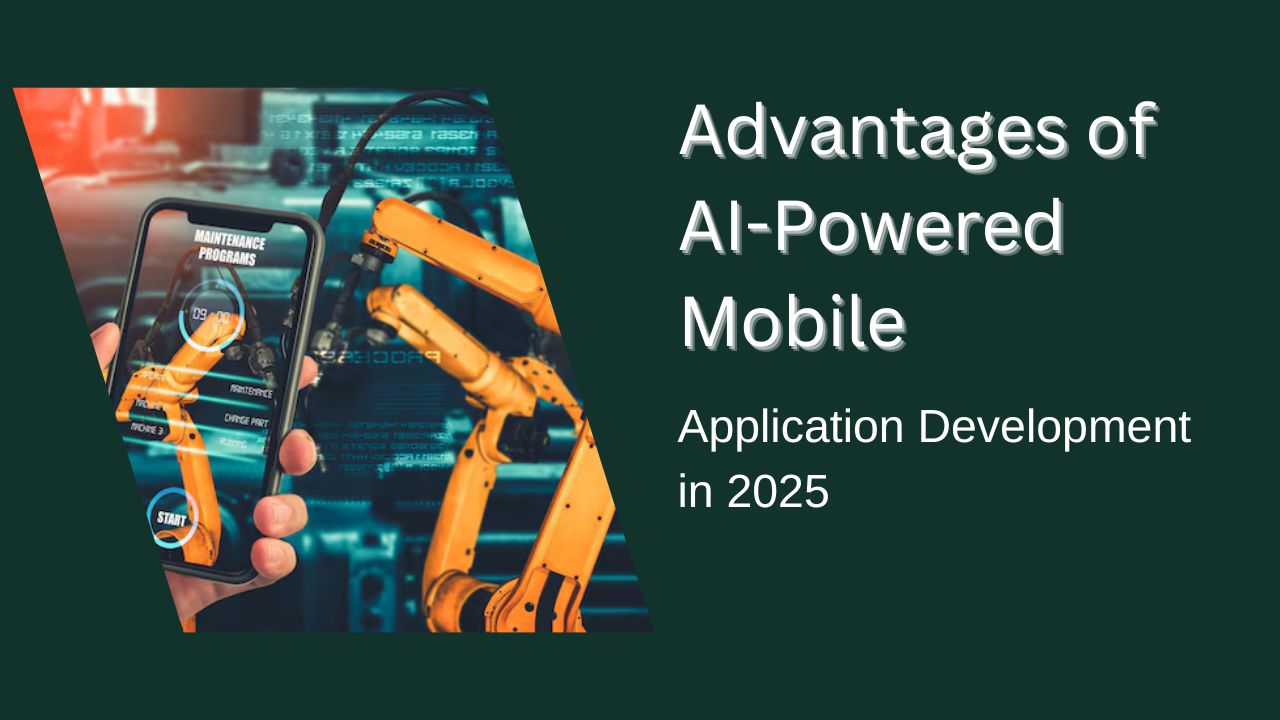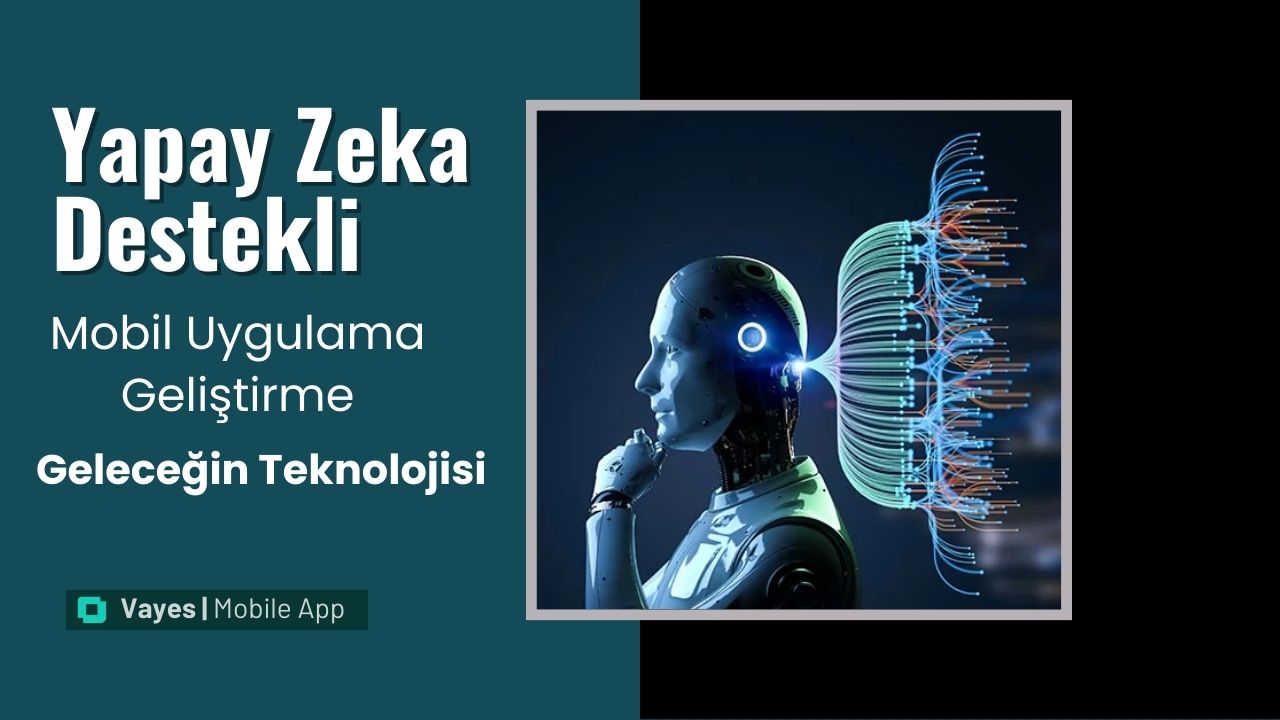Table of Contents
- Artificial Intelligence and Mobile Applications: The Power of Convergence
- Advantages of AI-Powered Mobile Application Development in 2025
- Technologies Used in AI-Powered Mobile Application Development
- Examples of AI-Powered Mobile Applications by Industry
- Future Trends: 2025 and Beyond
- Challenges in AI-Powered Mobile Application Development
- Popular Artificial Intelligence Tools and Platforms
- The Future of AI-Powered Mobile Application Development
AI-Powered Mobile Application Development: The Technology of the Future
In an era where technology is rapidly evolving, artificial intelligence (AI) is transforming mobile application development processes, offering unique opportunities to both developers and users. As of 2025, with the growing importance of mobile devices in daily life, it has become a necessity for applications running on these devices to be smarter, faster, and more personalized. In this article, we will explore the topic of AI-powered mobile application development with the most current insights, examining its advantages, use cases, and future impacts in detail.

Artificial Intelligence and Mobile Applications: The Power of Convergence
Artificial intelligence is a technology that mimics human intelligence, equipping machines with abilities such as learning, problem-solving, and decision-making. Mobile applications bring these capabilities into users’ pockets, simplifying daily life. In 2025, AI-powered mobile applications are no longer merely tools for entertainment or communication; they are revolutionizing critical sectors like healthcare, education, finance, and business. This convergence accelerates development processes while redefining the user experience.
Traditional mobile application development methods typically relied on static coding and manual processes. However, with artificial intelligence, these processes are becoming automated, errors are reduced, and applications can improve themselves based on user behavior. For instance, thanks to machine learning algorithms, an application can analyze a user’s habits and provide personalized recommendations.
Advantages of AI-Powered Mobile Application Development in 2025
AI-powered mobile application development offers countless advantages for both developers and businesses. In 2025, these benefits become even more evident as the technology gains widespread adoption. Here are some of these advantages:
- Faster Development Processes: Artificial intelligence automates code writing, shortening development time. For example, tools like GitHub Copilot provide real-time code suggestions, speeding up projects.
- Personalized User Experience: By analyzing user data, artificial intelligence offers tailored content and features for each individual, enhancing engagement.
- Error Reduction: Automated testing and debugging tools detect issues that might be missed in manual processes.
- Cost Efficiency: The automation of repetitive tasks reduces development costs and allows resources to be redirected to more strategic areas.
- Scalability: Applications developed with artificial intelligence can easily adapt to growing user bases.
Technologies Used in AI-Powered Mobile Application Development
In 2025, the technologies used for AI-powered mobile application development have become highly diverse. These technologies make applications smarter and more functional. Here are some of the standout technologies:
- Machine Learning: Analyzes user behavior to enable applications to improve themselves. Frameworks like TensorFlow are frequently used in this field.
- Natural Language Processing (NLP): Voice assistants and chatbots powered by artificial intelligence can communicate naturally with users.
- Image Recognition: Camera-based applications recognize objects, offering augmented reality (AR) experiences.
- Predictive Analytics: Predicts users’ future behavior to provide proactive solutions.
- Quantum Computing: Though still in its early stages, it is beginning to be integrated into mobile applications to solve complex problems.
Examples of AI-Powered Mobile Applications by Industry
Artificial intelligence enhances the potential of mobile applications across various industries. In 2025, these applications provide industry-specific solutions, making a significant difference. Here are some examples:
- Healthcare: AI-powered healthcare applications analyze patient data to provide diagnoses and suggest treatment plans. For example, an app can monitor pulse and sleep data to offer health recommendations.
- Education: Language learning applications use artificial intelligence to provide personalized lessons based on the user’s level. Apps like ELSA Speak use voice recognition to improve pronunciation.
- Finance: Mobile banking applications leverage AI algorithms for fraud detection and expense analysis.
- E-commerce: Recommendation systems provide personalized product suggestions based on users’ past purchases.
- Gaming: Artificial intelligence enhances NPC (non-playable character) behavior in games, delivering more realistic experiences.
Future Trends: 2025 and Beyond
2025 marks a turning point for AI-powered mobile application development. The future of technology is being shaped by the following trends:
- Augmented Reality (AR) Integration: Artificial intelligence, combined with AR, offers interactive experiences in areas ranging from shopping to education.
- Internet of Things (IoT) Connectivity: Mobile applications integrated with smart devices excel in areas like home automation and health monitoring.
- 5G and Edge Computing: Faster data processing and lower latency enhance the performance of AI applications.
- Ethics and Security-Focused Development: Data privacy and ethical use are becoming priorities for developers.
- Multi-Platform Support: Cross-platform development tools, enhanced by artificial intelligence, are becoming more efficient.
Challenges in AI-Powered Mobile Application Development
Although AI-powered mobile application development offers significant opportunities, it also presents some challenges. These challenges affect the technology’s widespread adoption:
- Data Privacy: The collection and processing of user data raise privacy concerns.
- High Processing Power Requirements: AI algorithms demand high performance from mobile devices.
- Training and Expertise: Developers need to master artificial intelligence technologies.
- Cost: Initial investment costs can pose a barrier for small-scale businesses.
- Ethical Issues: Misuse of data or biased algorithms can lead to trust issues.
Popular Artificial Intelligence Tools and Platforms
In 2025, tools used for AI-powered mobile application development provide significant convenience to developers. Here are some of the most popular ones:
- TensorFlow: Developed by Google, this open-source framework simplifies integrating machine learning models into mobile devices.
- Flutter: This cross-platform development tool, when combined with artificial intelligence, enables rapid prototyping.
- Core ML: Apple’s machine learning framework accelerates AI integration in iOS applications.
- PyTorch: With its flexible structure, it is widely used in research and development projects.
- AppMaster: As a no-code platform, it democratizes application development with artificial intelligence.
The Future of AI-Powered Mobile Application Development
Artificial intelligence continues to transform the world of mobile application development. In 2025 and beyond, this technology will push boundaries, leading to more innovative solutions. Developers will increasingly leverage AI capabilities to design user-focused and intelligent applications. At the same time, businesses will use this technology as a strategic tool to gain a competitive edge.


 Notification Center 00:00
Notification Center 00:00